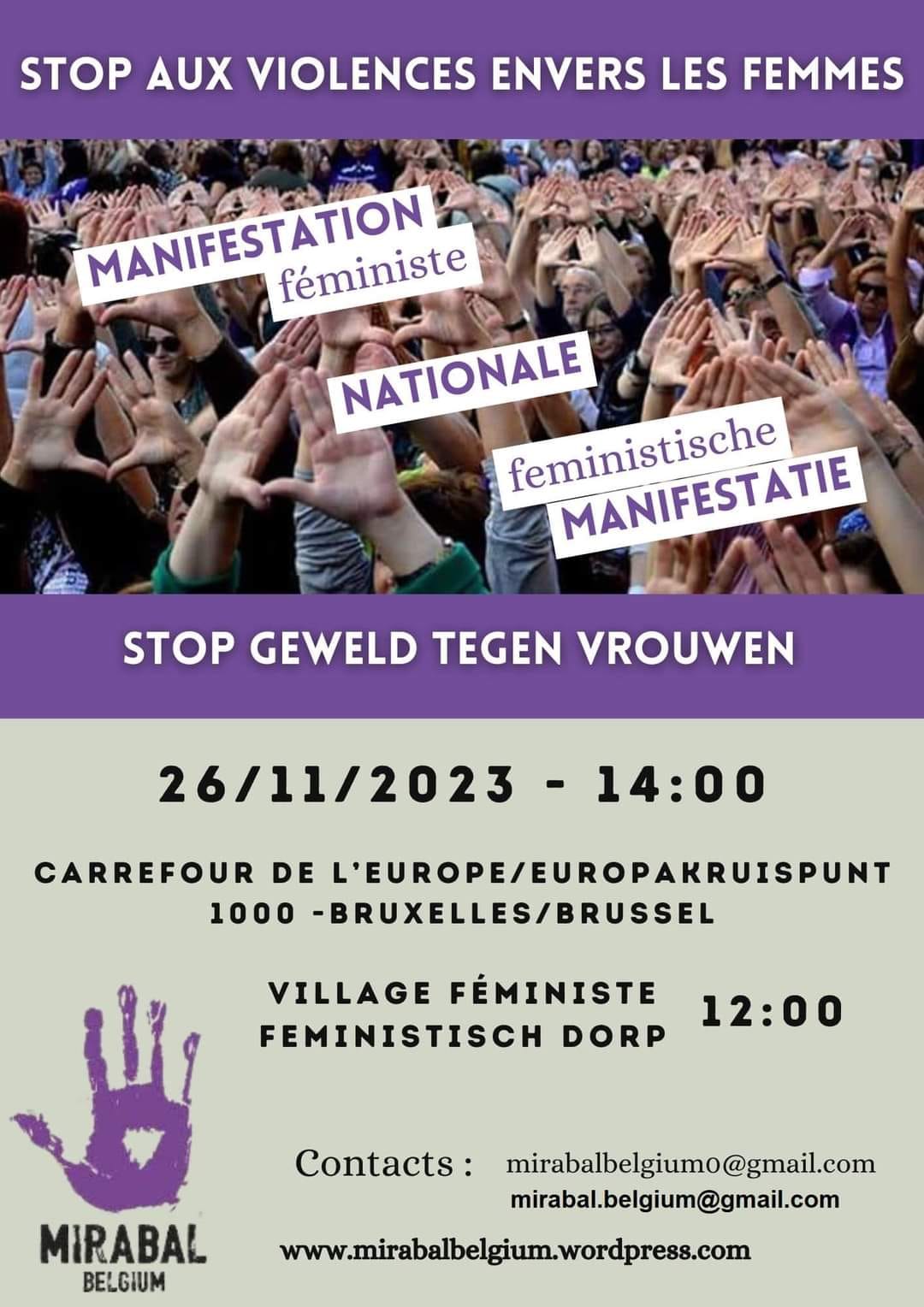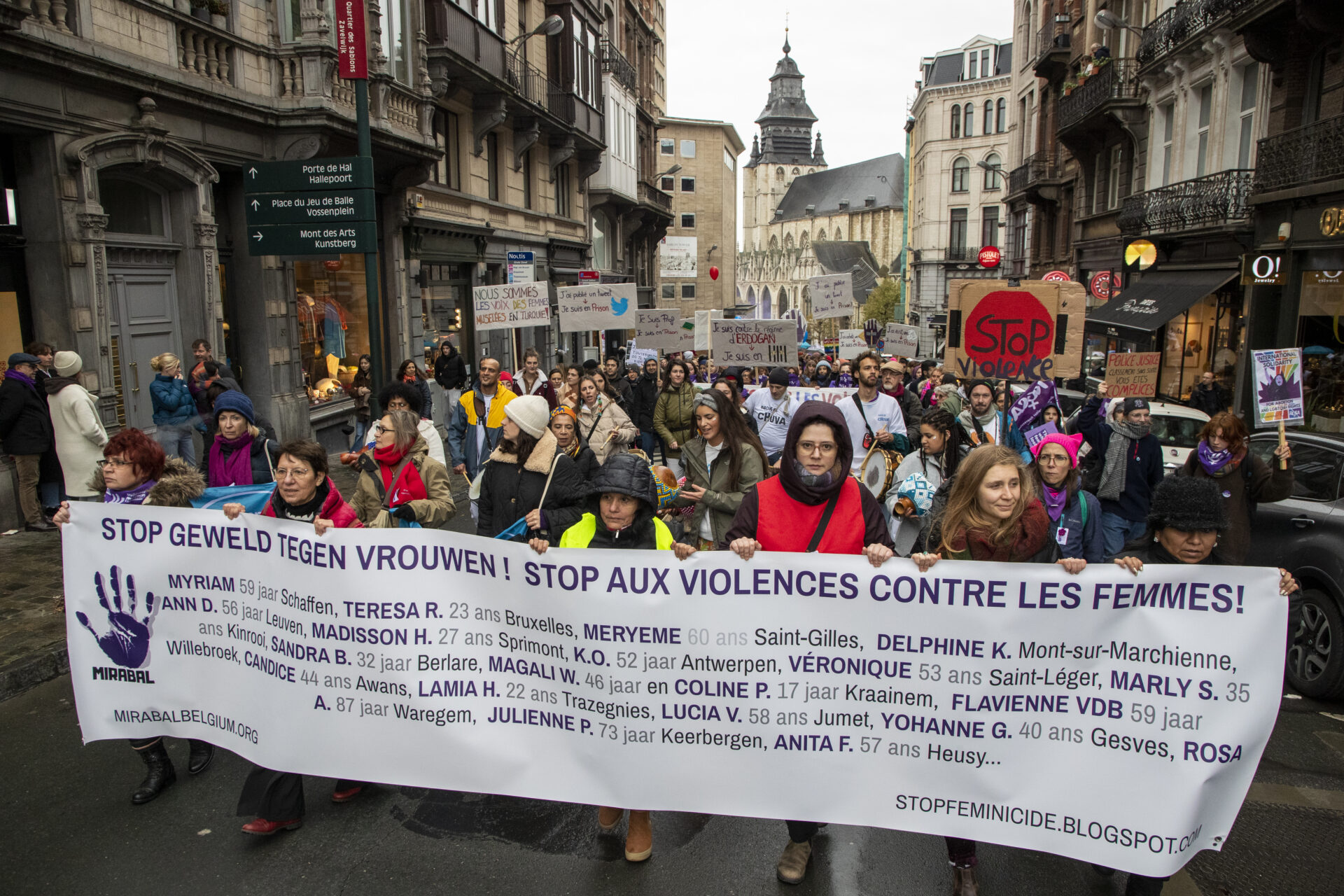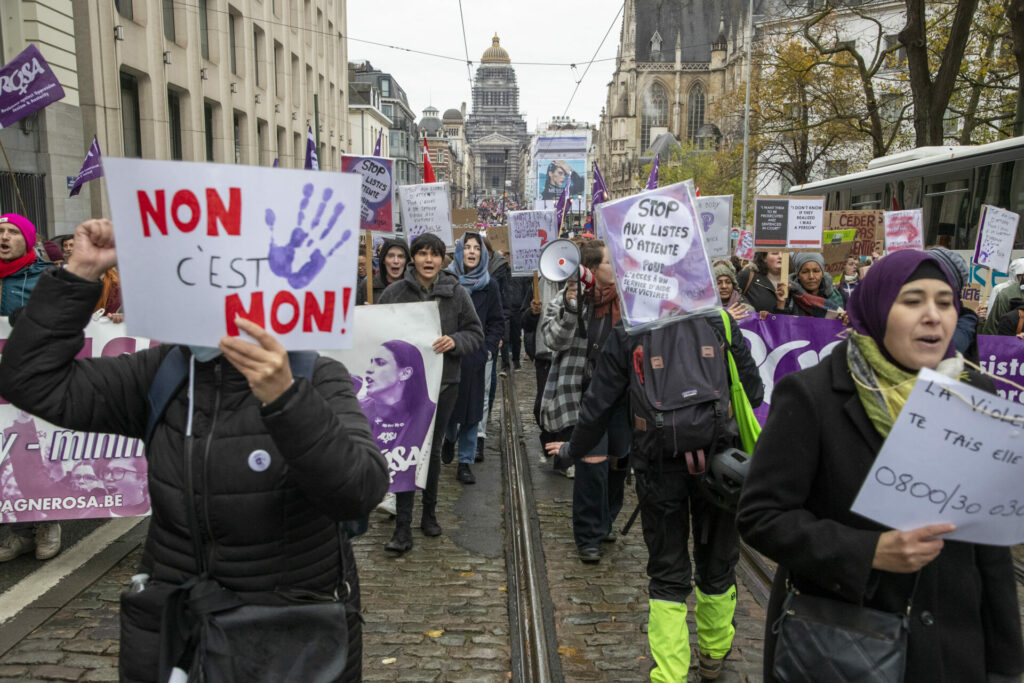To mark this year's International Day for the Elimination of Violence against Women (25 November), there will once again be demonstrations across Belgium.
There will be nationwide demonstrations on Sunday, with over 100 civil society organisations united under the Mirabal platform taking to the streets of Brussels and other Belgian cities to demand an end to all forms of violence against women.
Launched in 2017, Mirabal organises protests in Brussels annually around 25 November. Around 5,000 people are expected to attend the Brussels march this year, which starts at 14:00 at Brussels-Central station. A community village will also be set up at Mont des Arts from 12:00 onwards.

Credit: Mirabal Belgium
Mirabal acknowledges Belgium's progress over the past four years, including reform to the sexual penal code, the 'Stop Féminicides' law, and a national action plan against gender-based violence. But the 24 femicides so far this year are a reminder of persisting violence, and the fight is far from over.
100 femicides in three years
Wallonia has announced €550,000 to make women's shelters in response to the growing risk of femicide, physical assault, and harassment – in particular for cases where a separated couple share a child. The battle for child custody often leads to violence or threats towards the mother, stated Walloon Minister for Women's Rights Christie Morreale.
Morreale announced 300 new places for housing, either ready or in the process of being created. These will alleviate emergency situations for victims of violence and their children.
"Since the start of 2020 Belgium has recorded 100 femicides. Wallonia relentlessly continues its daily efforts to prevent the worst outcomes, providing support and guidance to women living in fear of domestic violence," Morreale said.
Meanwhile in Flanders, the number of safe houses has more than doubled, now nine in total. "The fight against intra-family violence has never been taken so seriously and we are clearly shifting up a gear. An extra €9 million a year and 95 extra staff will be brought in to show victims we are on their side," stated Flemish Justice and Enforcement Minister Zuhal Demir.
In addition, the Federal Railway Police announced earlier this week that it would step up efforts to improve the feeling of safety among passengers on metros and trains with targeted actions. One in three women avoid public transport in Belgium for fear of being a victim of inappropriate behaviour by other passengers. In 2019, over 400 complaints about sexual violence in public transport were recorded.

National demonstration against violence against women organised by the Mirabal platform in Brussels in November 2022. Credit: Belga / Nicolas Maeterlinck
In anticipation of next year's elections, feminist movement Vie Féminine also published a set of recommendations on Friday to encourage the development of a "real public policy to support victims' recovery."
Vie Féminine urges the Federal Government to create a "recovery pack" for victims of gender-based violence, granting them emergency financial aid in the form of a donation or interest-free loan. The pack would also include 20 free sessions with a specialist psychologist, as is already the case for victims of sexual violence in the Centres de Prise en Charge des Violences Sexuelles.
Furthermore, the organisation calls for a specific public status for victims, given that "after a violent relationship the victim needs time [to recover] and experiences trauma as well as often still being a victim of post-separation violence."

